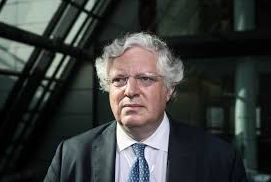
Government Greenlights New Effort to Find the Aircraft after Ten Years of Mystery
The Malaysian government has confirmed it will recommence the search for the missing Malaysia Airlines Flight MH370, which disappeared in 2014 with 239 people on board. This decision follows years of failed attempts to locate the wreckage of the Boeing 777, a case that remains one of aviation’s greatest mysteries.
Transport Minister Anthony Loke announced that the cabinet had agreed to a deal with Ocean Infinity, a marine exploration firm based in the United States. The new search, valued at $70 million (£56 million), is based on a “no find, no fee” model, meaning Ocean Infinity will only receive payment if the wreckage is found.
This new effort will focus on a 15,000-square-kilometre area in the southern Indian Ocean, identified as having credible new data. The deal is still in negotiations, and final terms are expected to be concluded in early 2025.
The previous search conducted by Ocean Infinity in 2018, under similar conditions, proved unsuccessful. Additionally, a global search costing $150 million ended in 2017 after two years of searching the vast expanse of ocean.
The decision to resume the search has been met with a mixed response from the families of those on board. Many relatives are holding onto hope that this renewed search might finally provide closure. Jacquita Gonzales, the wife of flight supervisor Patrick Gomes, expressed immense joy at the news, calling it the “best Christmas present ever.” On the other hand, Intan Maizura Othaman, who lost her husband in the incident, shared the complex emotions of hope and sorrow after so many years without answers.
In the years following the disappearance, debris suspected to be from the aircraft washed up on various shores around the Indian Ocean, fueling ongoing theories about the crash. Despite numerous theories, including claims of deliberate pilot action or military involvement, investigators have not been able to definitively determine the cause of the crash.
A 2018 report suggested the aircraft’s controls were intentionally altered to divert the plane from its intended path, but it stopped short of identifying who may have been responsible. Investigators reiterated that conclusive answers can only be obtained if the wreckage is recovered.

















